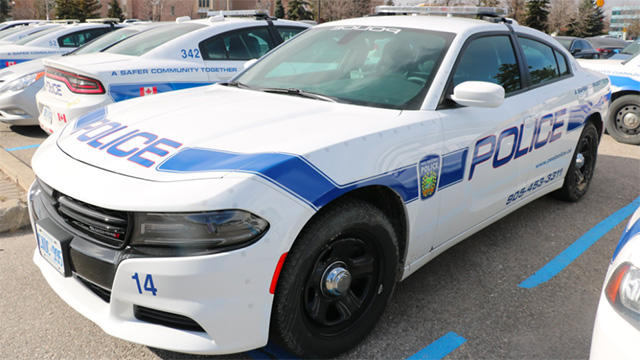What Do You Think of Street Checks in Mississauga?
Published February 25, 2018 at 10:49 pm

Street checks – also known as carding – have been an extremely controversial topic over the past few years in Peel. Some claim these checks are necessary to prevent crime. Others say it breeds animosity between police and civilians – especially those of colour.
Here in Peel, residents are being invited to a public forum on street checks as part of the review on March 8, 2018, from 6-8 p.m. in Brampton, in the auditorium at Loafer’s Lake Community Centre, 30 Loafer’s Lake Lane. This draws the question – what do you think of street checks in Mississauga?
2017 was an interesting year for street checks. Since January 1, 2017, a new regulation (Ontario Regulation 58/16) has been effect which prohibits police from “requesting identifying information arbitrarily, or based on a person’s race or presence in a high-crime neighbourhood during certain police-public interactions.”
About six months later, Justice Michael Tulloch, a judge of the Ontario Court of Appeal, was appointed to lead an independent review of the new rules across the province. Now, the Independent Street Checks Review is undergoing a public consultation phase where residents can weigh in on Ontario’s new rules on street checks.
For a little over a year now, the regulation has enforced new rules for police to follow when requesting identifying information:
Those new rules and criteria apply if an officer asks someone for identification while:
- Looking into suspicious activities
- Gathering intelligence
- Investigating possible criminal activity.
The new rules do not apply if police ask for identifying information or to see an identifying document while:
- Doing a traffic stop
- Arresting or detaining someone
- Executing a warrant
- Investigating a specific crime.
Although the topic has been controversial for some time, the move is the result of feedback from public consultations on how to improve police transparency, oversight and public confidence. The change will also establish new training, record-keeping and reporting requirements to strengthen accountability.
Ontario is actually the first jurisdiction in Canada to set rules for voluntary police-public interactions where police are seeking identifying information. While some have argued that the new rules will hinder crime prevention, they help clarify that arbitrary street stops are not akin to arrests or detainments. While citizens have always been free to refuse to provide ID to officers during arbitrary street checks, many were unaware that the interactions were voluntary.
Justice Tulloch is set make recommendations on all aspects of the use of carding or street checks, including how the province might improve the current rules.
The entire review focuses on the consistent application of the regulation without bias or discrimination, compliance by police officers and chiefs of police when applying the regulation, challenges encountered in applying the regulation, the appropriateness of the accountability and oversight mechanisms of the regulation, and whether additional changes are necessary to improve the practice of street checks, or whether street checks are still necessary in today’s policing practices.
Ultimately, Justice Tulloch’s review will examine training, policies, and procedures around the new regulation.
“Justice Tulloch will be reviewing the content of the Regulation and assessing whether police officers, chiefs of police and police services boards are complying with it,” according to the Independent Street Checks Review online. “More specifically, the Review will assess whether the Regulation reflects the government’s goal of ensuring that police-public relations are consistent, bias-free and done in a way that promotes public confidence and protects human rights.”
His final report will be made public by January 1, 2019.
If you’re not free to attend the session on March 8, there are other ones you can attend across the GTA, or you can connect with the review committee online. You can find more information here.
INsauga's Editorial Standards and Policies